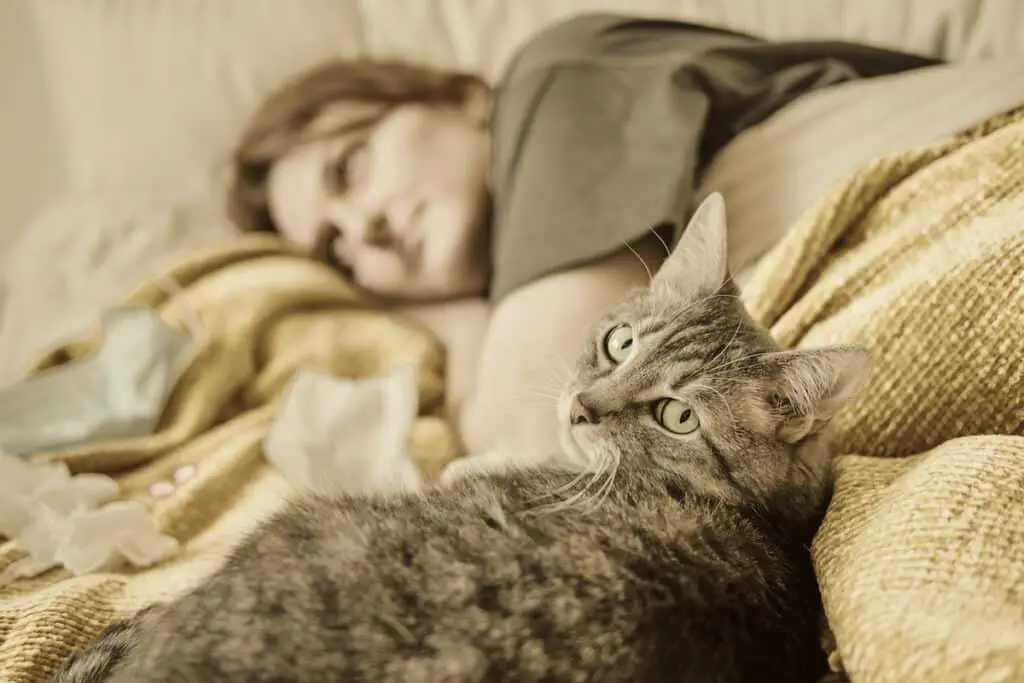Trying to determine why your cat is coughing a lot? There are several common causes and treatment options. Learn more about them and how to get your cat back to feeling normal.
Symptoms of a coughing cat
Symptoms of a coughing cat can range from mild to severe, depending on the underlying condition. If your cat is coughing frequently, it’s best to consult with your veterinarian. Depending on the underlying cause, your veterinarian may prescribe antibiotics or cough suppressants.
Some coughing in cats may be the result of allergies. These coughs are often accompanied by a wet cough. Your veterinarian may also order a stool sample for parasites.
If your cat coughs regularly, it could be a sign of an upper respiratory infection. This disease can cause symptoms such as fever, lethargy and coughing. In some cases, your vet may recommend antibiotics and steroids.
Coughing in cats can also be caused by allergies, parasites, or even foreign objects in the airways. Your vet may suggest removal of these objects, and may also prescribe anti-parasitism medications.
Coughing in cats can also indicate a serious illness such as lung cancer. Lung cancer is a serious health concern, so it’s important to get it checked out by a veterinarian as soon as possible. Your vet may order blood work, urine tests, a chest x-ray, and an ultrasound of the heart.
Possible causes
Whether your cat has a coughing fit or it is coughing a lot, you should take it to a veterinarian as soon as possible. Coughing in cats can be a sign of several different health conditions. The causes of coughing in cats range from allergies to respiratory disease.
Some causes of coughing in cats are treatable at home. In other cases, your veterinarian will need to perform diagnostic tests. These tests will help your vet diagnose the cause of your cat’s coughing.
Coughing is a common symptom of respiratory diseases. Infections such as pneumonia, viral rhinotracheitis, and feline herpesvirus can cause coughing. In some cases, your veterinarian may prescribe antibiotics or steroids.
Parasites can also cause coughing. Parasites such as heartworms, tapeworms, and lungworms cause inflammation in the lungs. This inflammation can cause coughing and loss of appetite. Proper treatment can kill these parasites and reduce the amount of mucus they produce.
Cats are also susceptible to infections from bacteria and fungi. Infections can cause coughing in cats, and symptoms may include fever, fatigue, and loss of appetite.
Treatment options
Depending on the cause, treatment options for cat coughing vary. Some cases may need in-patient treatment, while others can be treated at home. The treatment will be based on the diagnosis of the problem and the age of the cat.
Cats can cough for a number of reasons, but the most common are allergies and respiratory problems. Medications such as steroids can help suppress the cough, which will reduce the inflammation in the lungs. However, if the coughing continues despite medication, the cat may be suffering from an underlying problem.
Cats can also cough for a number of reasons, including fungal infection. These infections can cause a swollen nose and discharge from the nose. The inflammation can cause pain. A veterinarian may recommend anti-inflammatory drugs and/or antibiotics to treat the symptoms.
Some cats may cough because of heart failure or pneumonia. These conditions may be treated with antibiotics, decongestants, or a bronchodilator.
If a cat coughs due to allergies, treatment options include antihistamines or a humidifier. Allergies can cause similar symptoms as asthma. Keeping the cat in a quiet, relaxed state can help relieve the symptoms.
Retching and gagging associated with hairballs can be confused with coughing
Often, owners mistake retching and gagging associated with hairballs in cats with coughing. Coughing is a common respiratory problem in cats, and can be caused by a number of health conditions. The retching and gagging associated in cats with hairballs can also be a sign of a more serious medical condition.
A cat’s coughing is usually caused by an irritation of the mucous membranes that line the bronchi, trachea, and lungs. If a cat’s cough is persistent, it is a sign of an upper respiratory infection, respiratory disease, or inflammatory bowel disease. If a cat has coughing, it is important to see a veterinarian immediately.
Hairballs in cats are balls of hair and saliva that clump together in the digestive tract. They look like a thick, darkened hairball that can be up to five inches long. These balls can also contain bile and gastric secretions. The contents of a hairball will usually tint the hairball dark brown or yellow.
Hairballs are often caused by the cat’s habit of grooming itself, and can also result from digestive disorders such as gastrointestinal motility disorders. They can also be caused by the cat’s diet, which may be too high in fat. If a cat’s dietary habits change, it is important to introduce the new diet slowly and avoid disrupting the cat’s digestive system.














